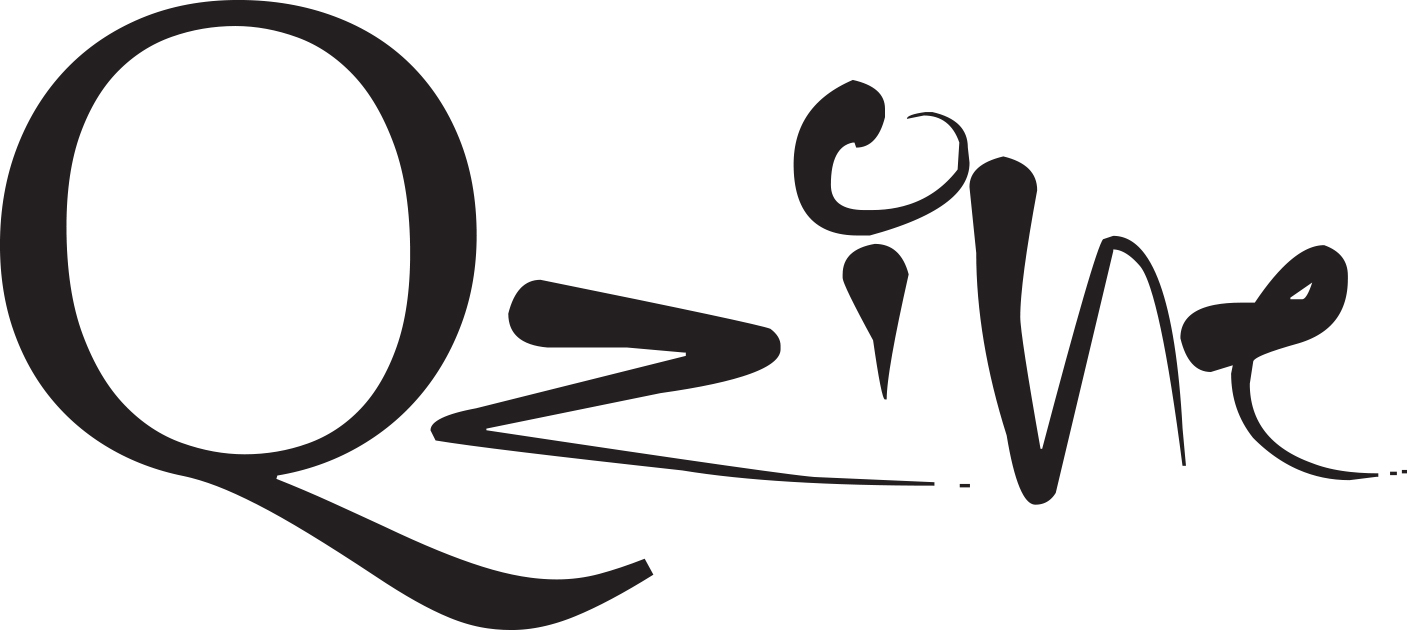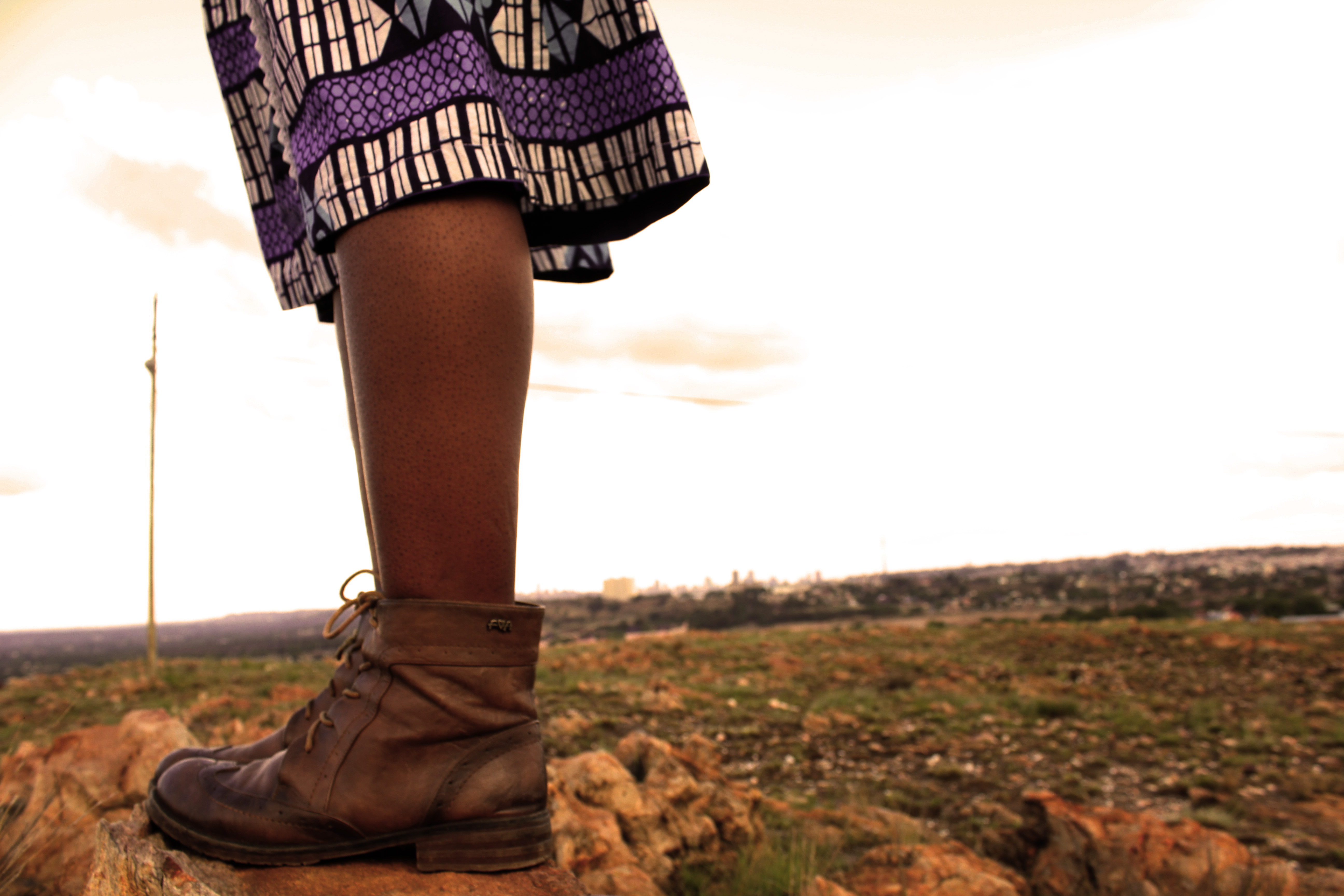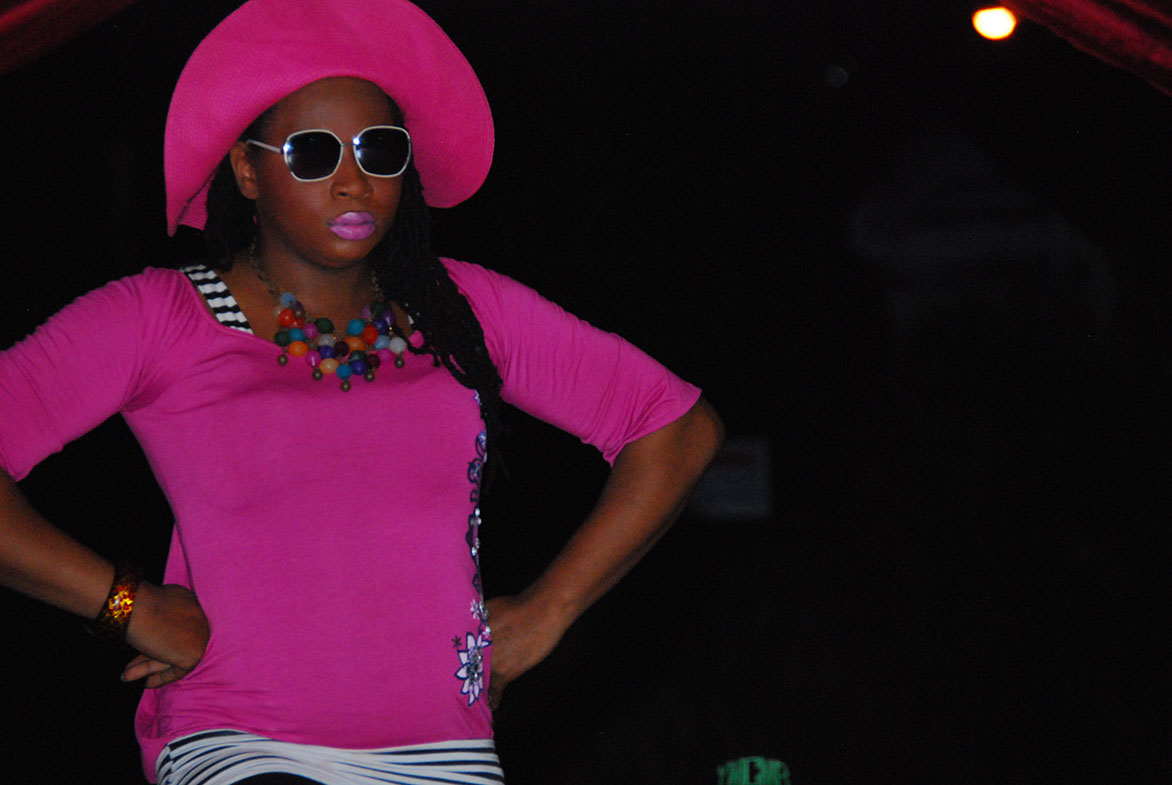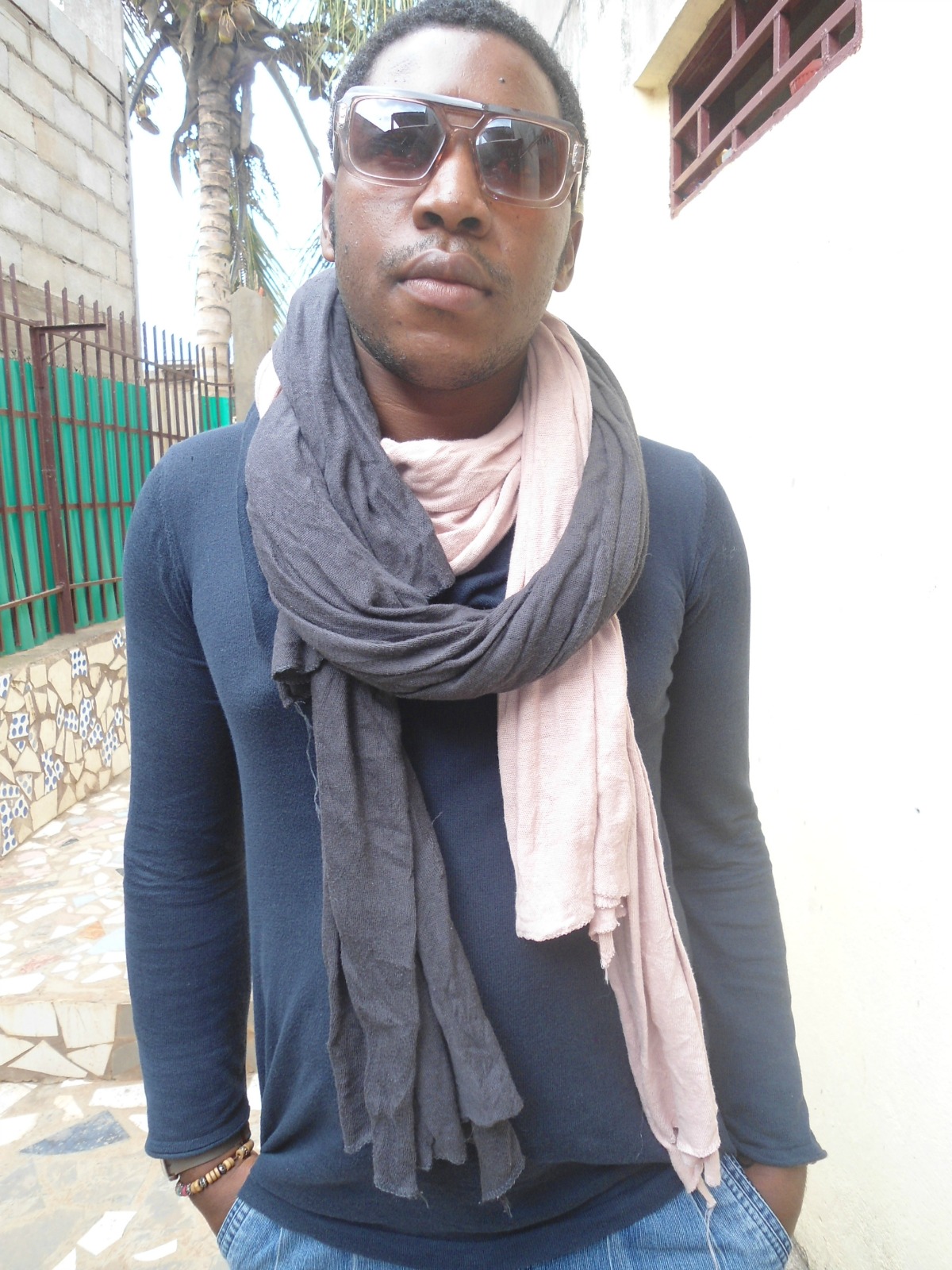A Matter of Taste
A Queer Moroccan’s View on Fashion. Excerpt of an interview with a gay Moroccan. By Gerard Casas
By the time I arrived, a good number of people were already sitting at the small gallery in Rabat where his first book was to be presented. Dressed up in a casual marine-like style, this 23-year-old student looked expectant and set to start reading out the most daring words he had so far written. The event was packed with known faces in the Moroccan LGBT community and it was a turning success for his career. The next week we grabbed a coffee together and sat at the capital’s crowded rail station before he would take a morning train home. I remember the purple skinny jeans he was wearing and the black leather jacket he had borrowed from his brother. What a total look! Every time I catch him on the Internet I’m happy to see he still dares to model any outfit that grabs his attention. Here are some words we exchanged over babbouches and heels, trend-setting celebrities and queer fashion stereotypes in Morocco.
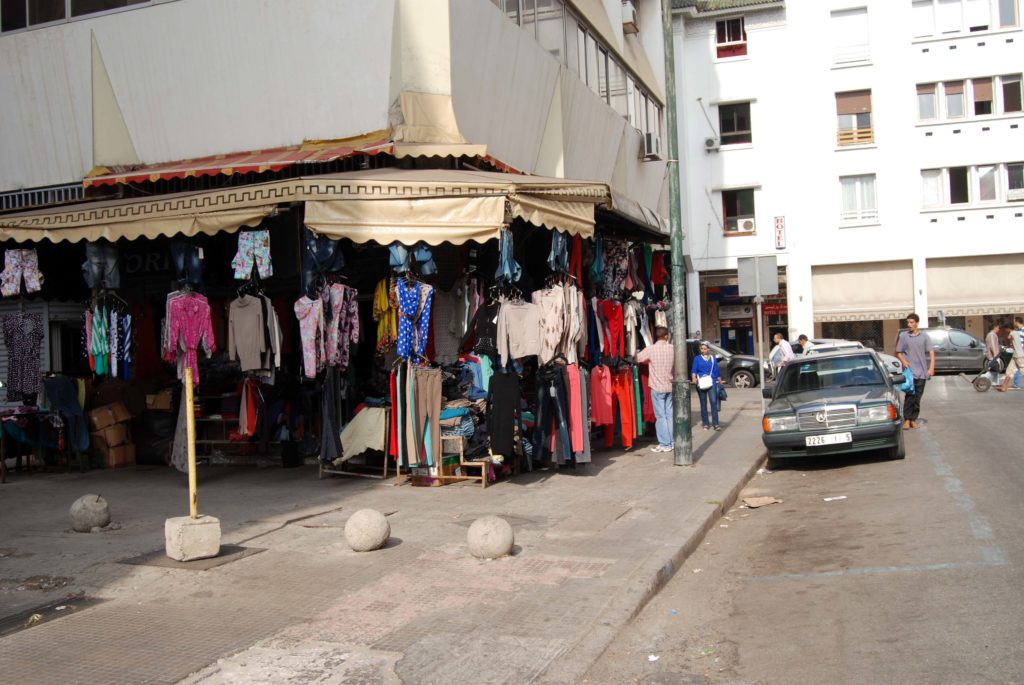
Are you interested in fashion? Do you think Moroccan youth are generally interested in style issues? What about fashion in Morocco? Are there successful, trend-setting brands? Do you like to buy your clothes from traditional markets or commercial brand stores?
I guess everyone is interested in fashion, since we all need to get dressed. Some follow trends; others just look for comfortable stuff to put on their skin. I like to see what’s in – and what’s not – but at the end of the day, it’s what I feel good in that counts.
We can see that Moroccan youth are getting more involved when it comes to fashion. Less than a decade ago, it started to become a way of expressing oneself.
Most of the time I never think of buying clothes; it only happens when I’m with a friend who wants to do so. So it depends, sometimes I buy from traditional markets, sometimes from commercial brands. It depends on my budget, on what I need, and also if it’s love at first sight – because if it doesn’t happen like that, it means that the shirt or those pants are not made for me, or at least don’t represent my mood at the moment.
Do you think the Moroccan queer community is keener on fashion than the rest of the population?
That’s for sure. But only those queer people who are aware of who they are and who accept themselves. It’s a way to express this uniqueness.
Do you feel constrained by traditional norms of appearance?
Not at all. I think traditional norms are made for people who feel comfortable in those clothes. I know I wouldn’t wear them. But, after all, we have so many ways of dressing that it would be a bit difficult to opt for a “traditional style” in certain cases.
Do you think that generally the queer community in Morocco escapes the traditional fashion elements such as, for example, wearing djellaba or babbouches?
I think not only queer people escape the traditional clothing norms. The new generation likes jeans better. But it’s very difficult to wear a nice djellaba. As for babbouches, I know I love them. I like wearing them paired with skinny jeans. They’re a match made in heaven for me!
Have you heard of any fashion shops in your city that are particularly frequented by queer customers?
I would say… Zara? I don’t know a lot about trends, but Zara and H&M often pop to mind.
Would you say queer individuals are often exposed to judgments on the basis of their clothes and appearance?
Be skinny, wear skinny jeans, and you’ll see! That’s my case. Being judged because of the way I look means that I’m not like the others. So if they notice me, then fashion has done its job!
Has any Moroccan personality in the public domain become a fashion icon among queer Moroccans? Has any foreign model?
It also depends on the person and on what he/she aspires to be, do or become. I only speak for myself when I say that I still haven’t found a Moroccan public figure that could be a fashion icon for men. I know, though, that I love the way Moroccan singer OUM manages to wear a trendy look mixed with a Saharian touch – and it’s never too much!
As for foreign icons, I must admit I have a big crush on how actor Justin Trinter (from Semi-Precious Weapon) and the Kazaky members dress. It’s so manly, yet so girly, but always sexy. There is something about Glam Rock – skinny jeans and high heels – that makes me want to marry those guys who know how to put on something like that — though I know that I can’t do so in Morocco, of course.
Would you say queer Moroccans have established their own fashion symbols or just taken inspiration from foreign sources? How do Moroccans have access to sources of fashion inspiration?
We cannot generalize, but I think Moroccan queer individuals are like all other queers in the world. Some of them look for role models, to see how other foreigners look. And some others have this “outsider look” mixed with an Arab Moroccan authenticity, which I think is much more expressive in terms of representing the Moroccan LGBT identity.
Thank God for the Internet and television. Being open to the world gives people a VIP access to what the world is all about.
Do queer Moroccans stick to stereotypes when it comes to dressing, jewelry and hairstyling or – on the contrary – do they adopt unique styles?
You will find exceptions in every community, in every sexuality. You will find straight people who are very fashionable and gay people who are not. It’s just about how open to the world and new ideas you as an individual are.
Do you think there are dress codes that are typical of the queer community? What elements of style do you think exist among lesbians? And among gays?
Among gays, it’s all about showing your curves. Concerning lesbians, it depends; it’s either about showing the body or, on the contrary, wearing big baggy clothes.
Would you say that Moroccan lesbians feature specific elements of style such as short haircuts, piercings or sportive looks? Why do you think they adopt such symbols?
I know a lot of lesbians who are very feminine. But also a lot of them wear short haircuts and very sportive or manly outfits. It’s all a matter of using clothing to show off who you really are.
Do you think Moroccan gay men are more attracted to wearing accessories and over-dressing than straight men?
For sure! Being aware that you are different makes you want to show this off, prove it. It is definitely a good way of staging this sexual revolution.
Is the non-queer citizen aware of these symbols? Would you say the butch and femme stereotypes also exist in Morocco?
Butch, femme, cross-dressing… you name it, we have it all! Once again, it’s about how the Internet and other media have made it easier to open up and see how the world changes and works.
Would you say that adopting certain queer style elements has to do with the stage of the coming-out process a person is in?
Some people like to wear a pair of straight jeans and a white shirt because they want to be discreet. Others would put on a pair of distressed red skinny jeans along with a t-shirt with a kinky, weird drawing on it. And for sure, if you get dressed in the latter style, it means you don’t care about the world and accept who you are. I think we need more of that.
I’ve heard that cross-dressing is – or used to be – a common traditional practice in Morocco. Was this only in the queer community or was it also practiced by straight individuals? In which kind of situations was or is cross-dressing practiced?
Cross-dressing is still practiced in Morocco. Since it’s prohibited for women to dance in public – or maybe because of religion women are supposed to be shyer – men tend to cross-dress. I wouldn’t say all of them are gay, just as I wouldn’t be sure that all of them are straight.
